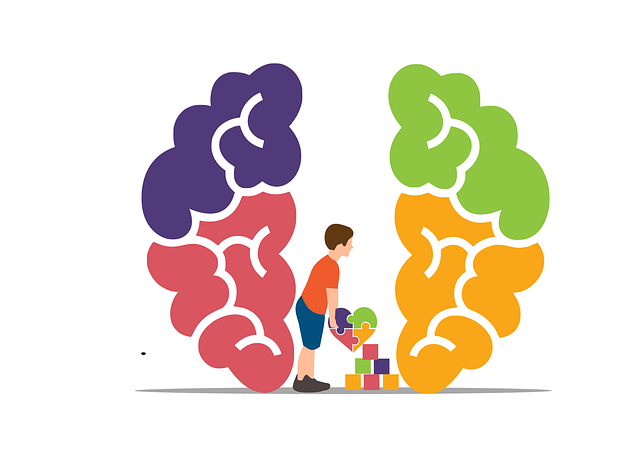Healthcare provider burnout, a global crisis affecting specialties and countries alike, manifests as emotional exhaustion, depersonalization, and reduced personal accomplishment. Driven by long hours, heavy workloads, and complex interpersonal dynamics, it requires a multifaceted approach to prevention. Longmont International Adoptions Therapy offers a pioneering model focusing on mental well-being and anxiety relief through evidence-based practices, emotional intelligence development, self-care routines, and improved communication strategies. Creating supportive work environments, led by empathetic leadership, team-building activities, equitable workload distribution, and community outreach programs, is key to mitigating burnout. Fostering holistic emotional healing processes, social support, and knowledge sharing among professionals further enhances well-being and improves patient outcomes.
Healthcare provider burnout is a global concern, impacting not just individuals but the entire healthcare system. This article explores comprehensive strategies to prevent burnout among healthcare professionals. From understanding the unique challenges they face to implementing innovative solutions like Longmont International Adopts Therapy, we delve into actionable steps. Additionally, it highlights the significance of supportive work environments, enhanced self-care practices, and building resilience through teamwork and community engagement.
- Understanding Burnout Among Healthcare Providers: A Global Concern
- Longmont International Adoptions Therapy: A Unique Approach to Prevention
- Creating a Supportive Work Environment: Strategies for Leadership
- Enhancing Self-Care Practices for Sustained Well-being
- Building Resilience: Teamwork and Community Engagement
Understanding Burnout Among Healthcare Providers: A Global Concern

Burnout among healthcare providers is a pressing global concern, impacting professionals across diverse specialties and countries. This phenomenon goes beyond mere job dissatisfaction; it involves emotional exhaustion, depersonalization, and a reduced sense of personal accomplishment. Studies from organizations like Longmont International Adoptions Therapy highlight that burnout rates are alarmingly high in the medical field, with significant implications for both provider well-being and patient care quality.
The issue transcends cultural or geographical boundaries, signifying a universal need to address the root causes. Key contributing factors include long working hours, heavy workloads, and complex interpersonal dynamics within healthcare settings. To counter this trend, it’s imperative to adopt multifaceted strategies focusing on emotional intelligence development, implementation of self-care routine practices for better mental health, and fostering effective communication strategies among colleagues and patients alike.
Longmont International Adoptions Therapy: A Unique Approach to Prevention

Longmont International Adoptions Therapy offers a unique and innovative approach to healthcare provider burnout prevention. This method leverages specialized programs designed to foster mental well-being among medical professionals, addressing the growing concern of anxiety relief in high-pressure environments. By integrating comprehensive mental health education into their practice, Longmont provides risk management planning tailored for these specialists, empowering them with effective coping strategies.
The therapy focuses on creating a supportive community where healthcare providers can openly discuss challenges and learn from each other’s experiences. This peer-to-peer support system helps in building resilience against stress and burnout, enhancing overall job satisfaction. Incorporating evidence-based practices into their programs, Longmont International Adoptions Therapy ensures professionals gain valuable tools for managing not just anxiety but also other mental health concerns prevalent among medical workers.
Creating a Supportive Work Environment: Strategies for Leadership

Creating a supportive work environment is a key strategy for healthcare provider burnout prevention. Leadership plays a pivotal role in fostering such an environment. Leaders should prioritize open and honest communication, encouraging staff to express concerns and share ideas. Regular team-building activities and social events can strengthen bonds among colleagues, promoting a sense of belonging and community. This, in turn, boosts morale and reduces stress levels.
Moreover, leaders must advocate for equitable workload distribution and ensure reasonable work hours. Recognizing and rewarding staff efforts through simple gestures like appreciation emails or public acknowledgments can go a long way. Implementing healthcare provider cultural competency training and community outreach program initiatives also demonstrates a commitment to employee well-being and professional growth. Effective communication strategies should be in place to facilitate clear expectations, feedback, and support at every level of the organization, mirroring the values of a compassionate care environment, such as those provided by Longmont International Adoptions Therapy.
Enhancing Self-Care Practices for Sustained Well-being

In the ongoing pursuit of optimal healthcare delivery, enhancing self-care practices is paramount for sustained well-being among healthcare providers. Longmont International Adoptions Therapy underscores this by promoting holistic approaches to emotional healing processes, which are integral in mitigating burnout. By integrating stress reduction methods tailored to individual needs, healthcare professionals can foster resilience and maintain a positive work-life balance. This not only benefits the provider but also translates into improved patient outcomes and enhanced job satisfaction.
Community outreach program implementation is another strategic approach worth exploring. Such initiatives allow healthcare providers to connect with their communities on a deeper level, fostering a sense of belonging and purpose. This interconnectedness can serve as a powerful buffer against burnout by providing social support and reinforcing the sense of significance that comes from making a positive impact beyond clinical settings.
Building Resilience: Teamwork and Community Engagement

Healthcare provider burnout is a growing concern, but building resilience through teamwork and community engagement can offer powerful prevention strategies. Fostering a supportive work environment where professionals can collaborate and share knowledge creates a sense of belonging and reduces feelings of isolation. At Longmont International Adoptions Therapy, for instance, therapists engage in regular team meetings to discuss complex cases, providing an opportunity to learn from peers and build collective expertise. This kind of community engagement strengthens the support system for healthcare providers, enhancing their ability to cope with challenging situations.
Promoting public awareness campaigns that highlight the importance of mental health in the medical field can further mitigate burnout. Encouraging open conversations about the pressures and rewards of healthcare work can help reduce stigma associated with seeking support. Additionally, integrating self-care practices into the healthcare culture encourages providers to prioritize their well-being. Simple yet effective measures such as scheduled breaks, regular exercise, and mindfulness practices can significantly contribute to building resilience among healthcare professionals.
Healthcare provider burnout is a global concern, but by implementing strategies such as Longmont International Adoptions Therapy, supportive work environments, enhanced self-care practices, and building resilience through teamwork, we can create a more sustainable and healthy healthcare system. These comprehensive approaches not only benefit individual providers but also improve patient outcomes and the overall well-being of healthcare communities.














